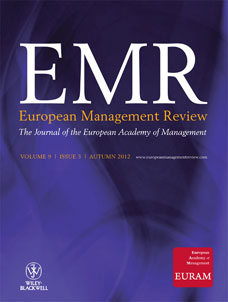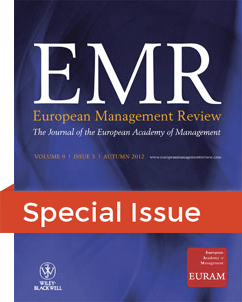Mine Karatas-Ozkan, Vice President Talent Development
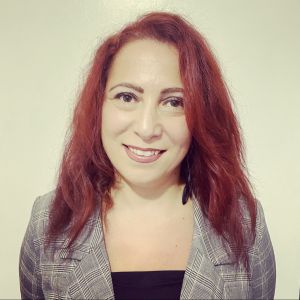
Connect with us as Mentors for the EURAM 2022:
We are delighted to invite you to join us for our Doctoral Colloquium (DC) scheduled on the 13th and 14th of June 2022, as Mentors! In such exciting times that we are re-shaping our doctoral education support activities, our flagship programme, namely, DC remains to be a magnet to attract brilliant doctoral students and such wonderful colleagues joining us and making our community grow every year. We aim to support our doctoral students not only academically and pastorally for their doctoral journey but also endeavour to guide them in transitioning out of their PhD, in other words, for their career development. Mentoring sessions have always been at the heart and soul of our EURAM DC and your efforts and contributions are highly appreciated by our students and us. Please drop me an e-mail at mko@soton.ac.uk if you wish to join us as Mentors for what promises to be a stimulating, inspiring and exciting event.
Mine Karatas-Ozkan, Vice-President Talent Development
Stefan Güldenberg, Vice President Practice
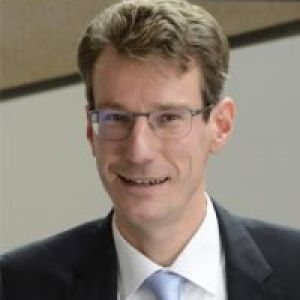
2021 has shown us again how important good and trust-building communication between science, politics and practice is. Good science communication is decisive in how well a country and its people can prepare for and master crisis situations. In this light the Corona pandemic can be seen as a test case for dealing with the great challenges facing humanity ahead, such as managing migration or climate change.
We as EURAM see ourselves committed to develop and provide state-of-the-art management knowledge towards key decision makers. We do this via three main channels:
- EURAM’s Annual Conference: Since 2020, it is possible to purchase a special practitioner ticket for our annual conference or key parts of it or to take over a sponsorship role. Built on this, we are offering a practitioners experience/path at our annual conference as well as various attractive opportunities for practitioners to engage in a valuable exchange with academia, such as the initiation of corporate research problem workshops, meet the academics, an academic buddy program, practitioner in residence for each SIG and much more. Within the next years, this should develop into a separate EURAM membership category for practitioners and a strong and scientifically engaged practitioners community within EURAM.
- EURAM Labs: On the day before the official opening of each EURAM Annual Conference, EURAM Labs offer the possibility for practitioners to interact with researchers in a workshop like setting on current grand topics and challenges. At the 2021 Online Annual Conference we have run altogether eight EURAM Labs on topics like “The impact of the Covid-19 pandemic on retailers and the changes in consumer behaviour”, “Vocational Training and Youth Employability after the Covid 19 crisis” or “ESG investing-the New Normal”.
- EURAM Sparks: In addition EURAM has continued its efforts to establish the EURAM Sparks initiative: EURAM Sparks. EURAM Sparks is an open-access platform driven by the idea to widely spread the latest research findings from the EURAM community towards practitioners. Sparks are based on cutting-edge research of EURAM members published in academic journals, academic books or at academic conferences. Sparks are presented in their very essence, understandable and impactful for practitioners who are provided with practical solutions and recommendations at their fingertips. A high-level Editorial Board ensures that each Spark contribution will be evaluated and only those having the potential to represent up-to-date scientific management knowledge and practical relevance will be published as EURAM Sparks. In addition all Sparks will be professionally edited in order to communicate management research in an most appealing way without losing its scientific accuracy.
Panos Desyllas, Vice President Funding
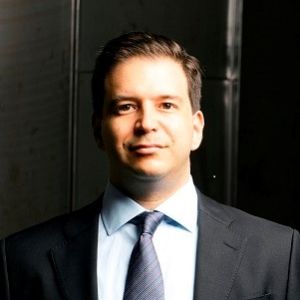
EURAM’s Research Funding Initiative
The VP Research Funding is a newly established position within EURAM’s executive committee, and reflects the Academy’s commitment to put a spotlight on the funding of management research. One of the primary triggers of this initiative is the observation that management research is not always receiving the level of public funding that it deserves. Compared to other social sciences, management research is often subject to the misconception that it can rely exclusively on funding from the industry. In practice, however, such funding is usually limited and can rarely fully support research on complex business issues involving different stakeholders. Through a series of initiatives, we aim to raise awareness and, hopefully, improve opportunities to conduct collaborative, funded research.
Funding Opportunities: Horizon Europe
(a) Pillar I: European Research Council (ERC)
During the last EURAM Annual Conference, we organised a PDW which focused on “Research Funding by the ERC”. As part of the workshop, we invited ERC grant holders (Luis Diestre, Professor at IE University; Maria Rentetzi, Professor at Friedrich-Alexander-Universität), coordinators from ERC’s office (Jerko Markovina, ERC coordinator of SH1 panel), former members of ERC’s peer review panel (Ammon Salter, Professor at the University of Bath) and EURAM’s current and past presidents (Kathrin Möslein, Professor at Friedrich-Alexander-Universität; Thomas Durand, Professor at Cnam). The speakers discussed:
- The different types of grants, namely, starting, consolidator and advanced grants.
- How to design the proposed research to demonstrate rigour, feasibility, and significance.
- How to communicate the scholarly significance and societal impact to management and non-management evaluators.
- How to navigate the different stages of the evaluation process.
According to ERC’s coordinator, ERC panel members are looking for proposals that address such questions as:
- Does the project go substantially beyond the state of the art?
- Why is the proposed project important?
- Is it timely? (Why wasn’t it done in the past? Is it feasible now?)
- What’s the risk? Is it justified by a substantial potential gain? Is there a plan for managing the risk?
- Why is the PI the best/only person to carry it out?
- Is the PI internationally competitive as a researcher at his/her career stage and in his/her discipline?
- Is there evidence that the PI is able to work independently, and to manage a 5-year project with a substantial budget?
For more information and to access the recording of the session, please visit: https://euram.academy/euram?service=info&p=hq_EURAM_Research
(b) Pillar II: Horizon Europe Cluster Calls
During the forthcoming EURAM Annual Conference in June 2022, we plan to organise a PDW on Pillar II of Horizon Europe, focusing on “Cluster Calls”. The panel is expected to discuss such issues as: How to identify relevant cluster calls? How to apply to a cluster call? And, how to identify partners or join and manage research consortia?
(c) Becoming an Expert Evaluator for Horizon Europe
There are opportunities to work for the European Commission as an expert evaluator of applications for Horizon Europe. Expert evaluators assist in the evaluation of proposals, prize applications and tenders. They are selected from the European Commission’s expert evaluator database. Colleagues need to register their interest through:
https://ec.europa.eu/info/funding-tenders/opportunities/portal/screen/work-as-an-expert
Please keep EURAM’s office informed once registering by emailing luisa.jaffe@euram.academy.




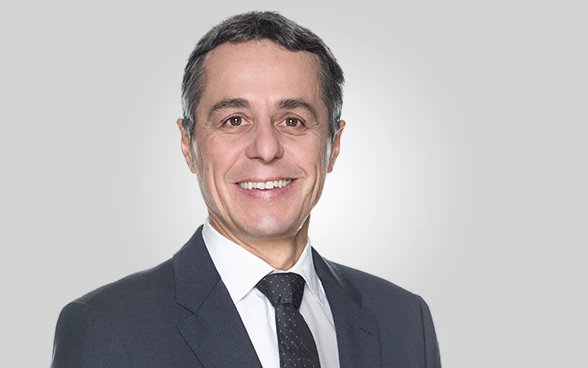 We are happy to announce that EURAM 2022 will open with a keynote speech by Ignazio Cassis, the President of the Swiss Confederation as of 1st January 2022. Mr. Cassis, who heads the Federal Department of Foreign Affairs (FDFA), will be the first President from the Italian-speaking part of Switzerland for more than 20 years.
We are happy to announce that EURAM 2022 will open with a keynote speech by Ignazio Cassis, the President of the Swiss Confederation as of 1st January 2022. Mr. Cassis, who heads the Federal Department of Foreign Affairs (FDFA), will be the first President from the Italian-speaking part of Switzerland for more than 20 years.